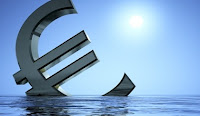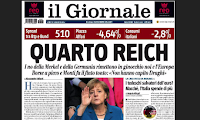 Reuters has got hold of a draft copy of the Troika's latest assessment of Greece, following their recent visit.
Reuters has got hold of a draft copy of the Troika's latest assessment of Greece, following their recent visit.
No major shocks... international lenders concluded that Greece is on track to hit its targets this year and in 2014, but warns it will struggle to fully return to the financial markets after that date.
The Troika also chides Athens for being too slow to privatize state assets....Here's Reuters' early take: Greece is set to meet its budget targets this year and next but must step up privatizations and public sector reform, the country's international lenders said in a draft report obtained by Reuters on Monday. The report by the European Union and the International Monetary Fund assessing the country's progress in meeting its bailout goals, said the country's privatization revenue target had been lowered for 2013 to €2bn ($2.59 billion) from €2.6bn euros. "While progress has been made in preparing assets for privatization, the overall speed of the privatization process remains unsatisfactory," said the report. The document adds to evidence that the debt-laden country still faces big hurdles to standing on its own feet, despite the fiscal progress made by its coalition government and about 200 billion euros in rescue loans it has obtained from the EU/IMF since mid-2010. Even though Athens' overall debt outlook remains unchanged as it overachieves on budget cuts, Greece would take several years to fully return to capital markets once funding from the bailout program ends in 2014, the report said....But where are the hundreds of thousands of Greeks, Spanish, Cypriots .. in the streets demanding immediate exit from the euro? Even in strike-happy Greece, SYRIZA (and far left too -- apparently), the country's second party in popularity, says that Greece's place is in the euro! And you're complaining, are you, about the Greek/Spanish/Cypriot...-bashing when in each and every of these countries there simply are no popular parties demanding immediate exit from the common currency. I'd say, either Greeks, Spanish, Cypriots...are into masochism or the press is terribly out of tune with what these countries' peoples really want. Each of those countries that you say are bashed would still need to auction their sov. bonds, even if tomorrow they were back to their original currencies. I am certain the bashing would not stop with their their old currencies reinstated.










